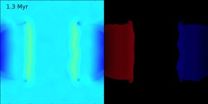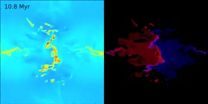(Press-News.org) New research launched today, 1st September 2014, has concluded that there are seven key issues that need to be addressed to ensure the future success of doctor revalidation, the most profound revision in medical regulation since the Medical Act of 1858.
The research has been funded by the Health Foundation, an independent health care charity, as part of a long-term programme looking at different aspects of revalidation. The work has been carried out by academics at the Collaboration for the Advancement of Medical Education, Research and Assessment (CAMERA) at Plymouth University Peninsula Schools of Medicine and Dentistry.
After over a decade of debate, revalidation for doctors was introduced by the General Medical Council (GMC) in the UK in December 2012 as a requirement for all registered doctors to demonstrate on regular basis that they are 'up to date and fit to practice'. It makes progress from the historic system of a one-off registration of doctors post-qualification, and provides assurances to the public about clinical standards.
According to the research, the seven issues in need of address to ensure that revalidation achieves its aims include:
Consistency in the appraisal process via a system of ongoing independent evaluation;
Ensuring revalidation is neither an appraisal 'tick box', nor unwieldy and bureaucratic;
More rigorous checks on evidence to help the appraiser and responsible officer with their judgements;
The introduction of systems to help doctors collate the evidence needed for the revalidation appraisal;
A clearer understanding of how inclusive patient feedback should be built into an appraisal as supporting evidence;
Clarification of remediation processes, including financial implications for NHS trusts and individual doctors' and;
Ongoing monitoring of revalidation to ensure it delivers its stated aims.
The research was led by Dr. Julian Archer, Director of CAMERA. He said: "Speaking to doctors and appraisers at the beginning of revalidation, when people were on 'high alert', gave us some interesting insights into revalidation in practice – including the views and opinions of everyone within the process, their views of what appraisal is for and how the process differs between primary and secondary care. As well as highlighting seven key areas for consideration, our research also paves the way for a full-scale evaluation of revalidation across the UK."
Darshan Patel, Research Manager at the Health Foundation, comments: "As a charity dedicated to improving quality of health care in the UK, we see revalidation as an essential ingredient when it comes to improving quality and to assess the skills and standards of our doctors. Only with this added to the mix can the medical profession ensure that a high standard of care is available to all."
INFORMATION:
Doctor revalidation needs to address 7 key issues for success, claims report
2014-09-01
ELSE PRESS RELEASES FROM THIS DATE:
Memory in silent neurons
2014-08-31
When we learn, we associate a sensory experience either with other stimuli or with a certain type of behaviour. The neurons in the cerebral cortex that transmit the information modify the synaptic connections that they have with the other neurons. According to a generally-accepted model of synaptic plasticity, a neuron that communicates with others of the same kind emits an electrical impulse as well as activating its synapses transiently. This electrical pulse, combined with the signal received from other neurons, acts to stimulate the synapses. How is it that some neurons ...
A new synthetic amino acid for an emerging class of drugs
2014-08-31
One of the greatest challenges in modern medicine is developing drugs that are highly effective against a target, but with minimal toxicity and side-effects to the patient. Such properties are directly related to the 3D structure of the drug molecule. Ideally, the drug should have a shape that is perfectly complementary to a disease-causing target, so that it binds it with high specificity. Publishing in Nature Chemistry, EPFL scientists have developed a synthetic amino acid that can impact the 3D structure of bioactive peptides and enhance their potency.
Peptides and ...
Discovery reveals how bacteria distinguish harmful vs. helpful viruses
2014-08-31
When they are not busy attacking us, germs go after each other. But when viruses invade bacteria, it doesn't always spell disaster for the infected microbes: Sometimes viruses actually carry helpful genes that a bacterium can harness to, say, expand its diet or better attack its own hosts.
Scientists have assumed the bacterial version of an immune system would robotically destroy anything it recognized as invading viral genes. However, new experiments at Rockefeller University have now revealed that one variety of the bacterial immune system known as the CRISPR-Cas system ...
Why sibling stars look alike: Early, fast mixing in star-birth clouds
2014-08-31
VIDEO:
This 11-second movie shows a computational simulation of a collision of two converging streams of interstellar gas, leading to collapse and formation of a star cluster at the center. Face-on...
Click here for more information.
Stars are made mostly of hydrogen and helium, but they also contain trace amounts of other elements, such as carbon, oxygen, iron, and even more exotic substances. By carefully measuring the wavelengths (colors) of light coming from a star, astronomers ...
Mixing in star-forming clouds explains why sibling stars look alike
2014-08-31
VIDEO:
This computer simulation shows the collision of two streams of interstellar gas, leading to gravitational collapse of the gas and the formation of a star cluster at the center. The...
Click here for more information.
The chemical uniformity of stars in the same cluster is the result of turbulent mixing in the clouds of gas where star formation occurs, according to a study by astrophysicists at the University of California, Santa Cruz. Their results, published August 31 in ...
Antarctic sea-level rising faster than global rate
2014-08-31
A new study of satellite data from the last 19 years reveals that fresh water from melting glaciers has caused the sea-level around the coast of Antarctica to rise by 2cm more than the global average of 6cm.
Researchers at the University of Southampton detected the rapid rise in sea-level by studying satellite scans of a region that spans more than a million square kilometres.
The melting of the Antarctic ice sheet and the thinning of floating ice shelves has contributed an excess of around 350 gigatonnes of freshwater to the surrounding ocean. This has led to a reduction ...
Changing global diets is vital to reducing climate change
2014-08-31
A new study, published today in Nature Climate Change, suggests that – if current trends continue – food production alone will reach, if not exceed, the global targets for total greenhouse gas (GHG) emissions in 2050.
The study's authors say we should all think carefully about the food we choose and its environmental impact. A shift to healthier diets across the world is just one of a number of actions that need to be taken to avoid dangerous climate change and ensure there is enough food for all.
As populations rise and global tastes shift towards meat-heavy Western ...
A new way to diagnose malaria
2014-08-31
CAMBRIDGE, MA -- Over the past several decades, malaria diagnosis has changed very little. After taking a blood sample from a patient, a technician smears the blood across a glass slide, stains it with a special dye, and looks under a microscope for the Plasmodium parasite, which causes the disease. This approach gives an accurate count of how many parasites are in the blood — an important measure of disease severity — but is not ideal because there is potential for human error.
A research team from the Singapore-MIT Alliance for Research and Technology (SMART) has now ...
Memory and Alzheimer's: Towards a better comprehension of the dynamic mechanisms
2014-08-31
This news release is available in French. Montréal, August 31, 2014 – A study just published in the prestigious Nature Neuroscience journal by, Sylvain Williams, PhD, and his team, of the Research Centre of the Douglas Mental Health University Institute and McGill University, opens the door towards better understanding of the neural circuitry and dynamic mechanisms controlling memory as well of the role of an essential element of the hippocampus – a sub-region named the subiculum.
In 2009, they developed a unique approach – namely, the in vitro preparation of a hippocampal ...
Renal denervation reduces recurrent AF after ablation
2014-08-31
Barcelona, Spain – Sunday 31 August 2014: Renal denervation reduces recurrent atrial fibrillation (AF) when performed with pulmonary vein isolation ablation in patients with AF and hypertension, according to research presented at ESC Congress today by Dr Alexander Romanov from the Russian Federation.
Dr Romanov said: "The prevalence of AF ranges from 1.5 to 2% in developed countries. This arrhythmia is associated with increased mortality, a five-fold risk of stroke and a 3-fold incidence of congestive heart failure. The vast majority of patients with AF also have arterial ...




